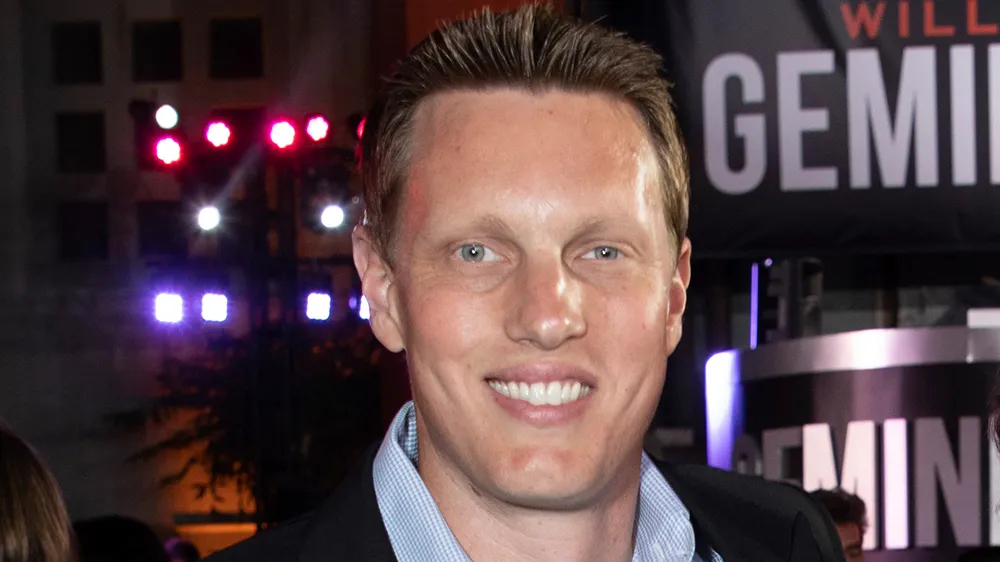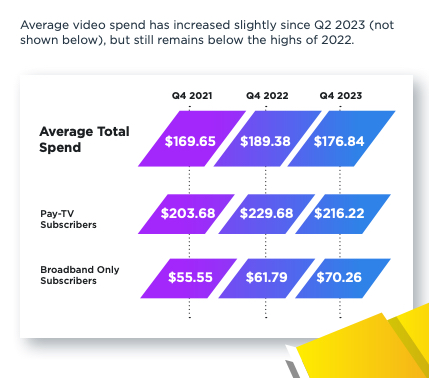
Each weekend, Next TV writers Daniel Frankel and David Bloom trade text messages about the things that thrill, annoy, interest, revolt, titillate and offend.
DANIEL FRANKEL: Well, David, the prophecy is at hand. It looks like Shari Redstone might really sell Paramount to David Ellison. What do you think Skydance will pay? What will they do with it?
DAVID BLOOM: I have no idea what Ellison will pay, given that we still don't exactly know what he proposes to buy. Is it the whole "mountain of entertainment?" Or is it just the Evil Genius Lair secreted within that mountain like NORAD? Redstone's National Amusements Inc. controls the mountain with super-voting shares, but is laden with its own messy debt and equity issues, plus several hundred not-very-interesting movie theaters. If Ellison cuts out most shareholders to buy Paramount control through NAI for, say, $4 billion, he's picking a nasty legal fight with everyday investors such as Warren Buffett and Mario Gabelli. Perhaps Ellison merges NAI with his Skydance, then takes over Paramount in a second round of dealmaking. All told, I doubt Buffett, Gabelli, et al will be content if the final payout isn't notably north of Apollo Global Management's recent $26 billion takeout proposal.

That offer was higher than Par's enterprise value, but still deemed inadequate by a Paramount board committee. Ellison and Redstone must have some plan to make everyone feel better, or they're just buying months of legal delays and headaches. That suggests Ellison's deal ultimately will be bigger than Apollo's 26 Very Large Bills. Meanwhile, as expected, Bob Iger won the humongously expensive Disney proxy battle with Trian Partners and other activist investors, but not by a confidence-instilling margin. Trian, of course, can now sell its Disney shares for a huge profit if it so chooses. And Iger still doesn't have an obvious successor, though rumors suggest it'll be entertainment chief Dana Walden. She's got the magic touch with talent, always important when running a studio. But Walden doesn't know much about ESPN or those theme parks, resorts, cruise ships, merchandise lines, and everything else that comprise at least the other half of Disney operations and revenue. So, we'll see how succession goes without the loving guidance of the "Smiling Crocodile," Trian's Norman Peltz.

FRANKEL: What do you think of Jimmy Pitaro's chances at the Disney throne? I heard his name tied to the job on X, and I'm just throwing it out there. And I get that he's 73 and he's been in the job quite a while across two terms, but why the rush to replace Bog Iger? I mean, a lot of us in Hollywood are trying to get an 81-year-old president re-elected. Dude's a relative whipper-snapper. Also, 3 Body Problem. The numbers have been OK. Why isn't this show a certified cultural phenomenon? I'm personally blown away.
BLOOM: Pitaro has an extremely good shot at running a hugely influential, global entertainment company that he actually knows thoroughly: i.e., a standalone ESPN with Disney partial ownership, perhaps shared with the NFL and other leagues, with a DTC service that actually features games people want to watch. That transformation would be a gigantic challenge to oversee for even a top-notch operator like Pitaro. So why would Pitaro want to back-burner that tricky process and take on, at 54, the headaches of learning all the rest of Disney's manifold operations? He could be king of his own castle, overseeing its transition to its streaming future, ensuring that his patrimony thrives for years to come. That seems more likely to me. As for Three Body Problem, I agree about Netflix's artistic achievement here. It's based on an absolutely extraordinary Liu Cixin book that provides, among other things, a harrowing opening section about the horrors and excesses of Mao's Cultural Revolution/Collective Insanity in the 1960s. Unlike a Chinese-language series based on the book, the more-Anglicized Netflix version tackles that section in a blunt and brutal way.
As The Guardian and others have noted, it points toward a shadow still looming over China, made newly relevant as China strongman Xi Jinping attempts to canonize Mao's rule while papering over Mao's horrific excesses. Some Chinese cheerleaders for Ji aren't happy about that, even though, in a particular irony, the Chinese government they revere forbids them from legally watching Netflix (VPNs are an amazing thing). Is that enough to slow uptake of the show? Is it just one of the challenges of being a science-fiction show, of having that brutal opening, or of being somewhat lost in the Netflix tsunami of international content? Or maybe it's just because the show deals with scary issues of science, math, suicide and the possible consequences of communicating with interstellar neighbors who may not have our best interests at heart.
FRANKEL: Distilling complex subject matter like astrophysics, the Fermi Paradox and the Maoist Revolution, making it all coherent, and getting to the action -- meeting the aliens and having their invasion start -- by episode 4 had to be no easy task. Something tells me that as long as there are popular novel series with rich backdrops that need adapting, David Banioff and D.B. Weiss -- who already adapted Game of Thrones -- will continue to find work. Speaking of finding work, there was a great story this week in the Los Angeles Times about Jakob Nowell, son of late Sublime singer songwriter Bradley Nowell, filling his dad's shoes for a reunion performance featuring original members Bud Gaugh and Eric Wilson at Cochella later this month.

Now, I must confess that Sublime was a phenomenon I lived through somewhat Zelig-like. I appreciated the band's self-titled third album, a truly classic LP released just a few months following Nowell's overdose death in May 1996. It was an absolute alchemy of rock, ska, hip-hop and other eclectic things, deeply ingrained with the culture and spirit of Sublime's geographical origins ... straight from Long Beach. As the saying goes, they captured the vibe of the place and the time. The only problem for me was that Sublime was played so incessantly on the radio -- on then-powerful KROQ in particular. We all consumed a lot of radio in 1996. And I somehow grew very tired and dissonant to Sublime, which seemed by gross tonnage to be subsumed by also ubiquitous airplay from other, far less dimensional SoCal bands of the time, including Stone Temple Pilots, The Offspring and No Doubt. Not trying to throw shade at the latter three. I just Sublime might have been that good. A full retrospective listen to their third record reveals a singular work powerful enough to render a trio from the LBC, 30 years after its creative force's passing, somehow still relevant.
BLOOM: Mozart, Miles, Sinatra, Sublime. The great ones stand the test of time. Macquarie senior media tech analyst Tim Nollen sent out a highly relevant note on connected TV advertising. Beyond epic Olympic and election-cycle spending, both Macquarie and Magna Global suggest a surging economy will make the connected TV ad climate even more robust.
Also read: Magna Sees National TV Ad Revenue Down 4.7% In 2024
That's good news for an industry knee-capped by cord-cutting, pandemics, strikes, spending cuts, growing churn, and an inadequate devotion to Sublime. But amid the optimism comes some concerns. Two months into Amazon's switcheroo turned tens of millions of subscribers into ad-supported (if not ad-supportive) Prime viewers, Digiday suggested ad buyers are "tepid" about the product, while recognizing the potential to tie ads to direct sales. One dismaying quote says "CTV CPMS falling fast" as ad prices do that supply-demand thing while Amazon inflates the volume of impressions 8%. Macquarie also estimated Amazon spent $16.5 billion in amortized streaming costs in 2023, more than even Netflix. The report also expects it all will work out fine: "We think a supportive ad backdrop and increased availability of streaming impressions should encourage more CTV ad spending, where programmatic tools can bring efficiency." So is online video finally about to take off with lots of ad revenue and right-sized programming spend?
FRANKEL: There are so many narratives being spun in the connected TV business, it's hard to know what to believe. TiVo, for instance, last week put out the latest edition of its Video Trends Report ... in which it waves a yellow "caution flag" at the video business (actually, there were more than a dozen little yellow flag graphics festooned across the 20-page report), noting that cost-conscious consumers are using fewer video services and spending less money on streaming. It's a good time to be in the FAST business, says TiVo, which operates TiVo Plus. LG, meanwhile, put out a "study" that says consumers prefer their video free with ads. Well it just so happens that LG provides video free ... with ads.

BLOOM: Let a million little yellow flags bloom, to paraphrase Mao. I was part of a live panel this morning (it will be available for online replay this week) for consultant Brian Ring's revived FutureofTV.live media empire. Whither TV, especially sports TV, occupied our hour-plus conversation. Among other panelists, sports TV guru Pat Crakes suggested sagely that we're deep in the process of "reimaging" the pay TV bundle, a transition that will not be fun for a lot of people used to making lots of money. I mentioned one crucial example: Paramount Global has crucial renewal negotiations pending with both Charter and Comcast. The Disney-Comcast deal structure from last fall is extremely likely to be applied here, and to force the imminent demise of Par's less-compelling cable networks. Paramount+ almost certainly will become available to the MVPDs at a wholesale price for resale, if Ellison doesn't shut it down to avoid those huge losses. Another panelist, former Viacom data guy David Giles said he was one of the architects two decades ago for Viacom's notorious channel-stuffing strategies that milked more carriage fees from distributors. That era is now done. Yellow flags are everywhere, but most especially presumptions about streaming economics, which are still negative for everyone but Netflix. FAST channels could be a way for local college and high school sports to find audiences, especially alongside shoulder content from top-level leagues. Meanwhile, broadcast and the improbably revived Diamond Sports are rejiggering how hard-core fans watch their local teams' games. By happenstance, I'm writing this alongside Kendrick Lamar's aptly titled How Much a Dollar Cost from his stupendous multi-Grammy-winning To Pimp A Butterfly. How much a dollar cost is indeed the question square in the face of everyone in television.
FRANKEL: Using this fine Sunday to drain my swimming pool. Turns out we have build-up of cyanic acid, and quite a bit of copper staining. Doing a little acid wash while it's drained. This is actually a four-day process, so stick with me here. We'll see how that goes. Back to matters of import ... I just think it's a little disingenuous for TiVo to cite some kind of consumer "response to ongoing economic concern" at a time when the S&P is at record levels, we're adding 300,000 jobs in the U.S. every month, and Netflix is growing subscribers like gangbusters. This notion that we're all poor and turning to FASTs isn't the reality.
Speaking of disingenuous narratives, on Saturday, a "reporter" from OutKick, the Fox-backed digital platform founded by far right troublemaker Clay Travis -- which has discovered its new Larry Bird, Caitlin Clark, and is suddenly very interested in women's basketball -- asked South Carolina head coach Dawn Staley if she was OK with transgender athletes participating in women's sports. WTF?
I asked South Carolina head coach Dawn Staley if she supports transgender women (biological males) playing women's college basketball. "If you consider yourself a woman and you want to play sports or vice versa, you should be able to play." pic.twitter.com/SEQCsNiFvmApril 6, 2024
The reporter for this divisive, petty, far right digital media outlet -- an ESPN washout -- could have asked Ms. Staley what her team will do to control Iowa's Caitlin Clark during Sunday's Division I title game. Its reporter could have also asked Staley what it's like to coach for a championship that eluded her as a star player.
No, these guys want to wage culture war. Such serious journalists! Just forget the best collegiate championship event in several years was unfolding in front of our eyes, outrage must be had! Keep in mind that OutKick would be second in line behind Laura Ingraham to tell a guy like Lebron James to shut up a dribble if he dares get uppity and discusses anything remotely political. It's an entire ideology focused on driving us apart amid the things that have always brought us together. I wish Ms. Staley hadn't indulged these corrosive nitwits.
BLOOM: With your Sunday acid-washing exercise, I finally understand your taste in jeans. The Tivo talk about a tattered economy does seem dislocated from the economy's many very green shoots. The stock market may not reflect the real economy (it's more about economic expectations months or years from now), but that jobs report certainly suggests a strong recovery. So do the Magna and Macquarie assessments of burgeoning ad spending. You don't expand hiring or advertising if you think the economy is bad, regardless of your stock portfolio. FAST is a low-cost business that will generate revenue, but it has some weaknesses too. As consultant Colin Dixon noted in this morning's panel, you won't see many ads watching the FilmRise Westerns channel on a weekday afternoon. Amazon's big influx of impressions will only make that worse. The market is overstuffed with several thousand not-very-differentiated FAST channels, a number that surely will consolidate soon. As for the Staley question, the journalist's intent might be a bit slimy, partisan and poorly timed. But the inclusion of male-to-female trans athletes in athletic competition against biologically female athletes is a complicated issue of equity. Hearing what Staley, a former star female athlete turned coach of a massively successful women's team, thinks about that issue is a legitimate question. To my mind, in this particular area, the opinions of female athletes and coaches such as Staley matter more than those of just about anyone else.







